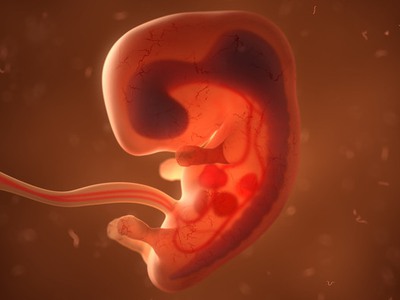Polycystic ovary syndrome (PCOS) affects more than one in ten women. The condition is characterised by increased levels of male sex hormones, menstrual irregularities, and insulin resistance. However, new research from researchers, including those at the University of Skövde, shows that PCOS also leads to a shift in muscle fibre type. This finding can explain why women with PCOS perform better in sports such as sprinting.

Women with PCOS perform better in physical tests compared to other female athletes, especially in explosive disciplines such as sprinting.
Our muscles consist of different muscle fibres, mainly type 1 and type 2. Type 1 fibres are slow and endurance-oriented, suitable for activities like jogging. On the other hand, type 2 fibres are fast and strong but tire more quickly.
Anna Benrick, Associate Professor of Biomedicine at the University of Skövde, has studied PCOS for several years. In a new study, she presents, along with researchers from other universities and research institutes, new results showing that women with higher levels of male sex hormones, as in PCOS, have fewer insulin-sensitive type 1 muscle fibres and an increased accumulation of fat in skeletal muscles. The study shows that it is the male sex hormones that lead to a decrease in type 1 muscle fibres.
The results could lead to better treatments
The lower occurrence of type 1 muscle fibres is one of the factors contributing to reduced insulin sensitivity, which can lead to the development of type 2 diabetes, explains Anna Benrick.
"The study significantly increases our knowledge of what causes insulin resistance in women with PCOS, a prerequisite for developing better treatments."
Brings training advantages for explosive sports
It can be challenging for those living with PCOS, but the new research results also show that the shift in muscle fibre type brings certain advantages. Despite the increased levels of male sex hormones, especially testosterone, contributing to insulin resistance in women, it is one of the body's most potent anabolic hormones that increase muscle mass and bone mass. Therefore, women with PCOS perform better in various physical tests compared to other female athletes, especially in explosive disciplines like sprinting that require many fast type 2 fibres.
"Women living with PCOS have a good ability to build muscle mass and improve insulin sensitivity during muscle work. These are advantages that can encourage women with PCOS to be physically active and participate in sports. The findings are of great interest not only to researchers but also to clinicians who encounter PCOS patients and can emphasise the benefits of exercise effects," says Anna Benrick.
How the researchers conducted the study
To get the result, the researchers used a method called proteomics. It is a method that can be used to figure out which proteins are present in our bodies and what they do. When researchers talk about proteomics, they use special tools and methods to look at a large number of proteins at once.
They accomplish this by extracting tiny samples from muscles or other tissues, closely analysing the presence and quantity of proteins in each sample. It is like studying a bunch of Lego pieces and trying to understand how they fit together. And it was when they studied all these proteins that they discovered that several proteins specific to slow type 1 muscle fibres were less prevalent in women with PCOS compared to those who had not been affected by PCOS.
The study was conducted by researchers from the University of Skövde, Karolinska Institutet, Sahlgrenska Academy, University of Gothenburg, Lund University, as well as the University of New South Wales and the Victor Chang Cardiac Research Institute in Australia.
The research article Proteomic analysis shows decreased type I fibers and ectopic fat accumulation in skeletal muscle from women with PCOS was published in the journal eLife.


